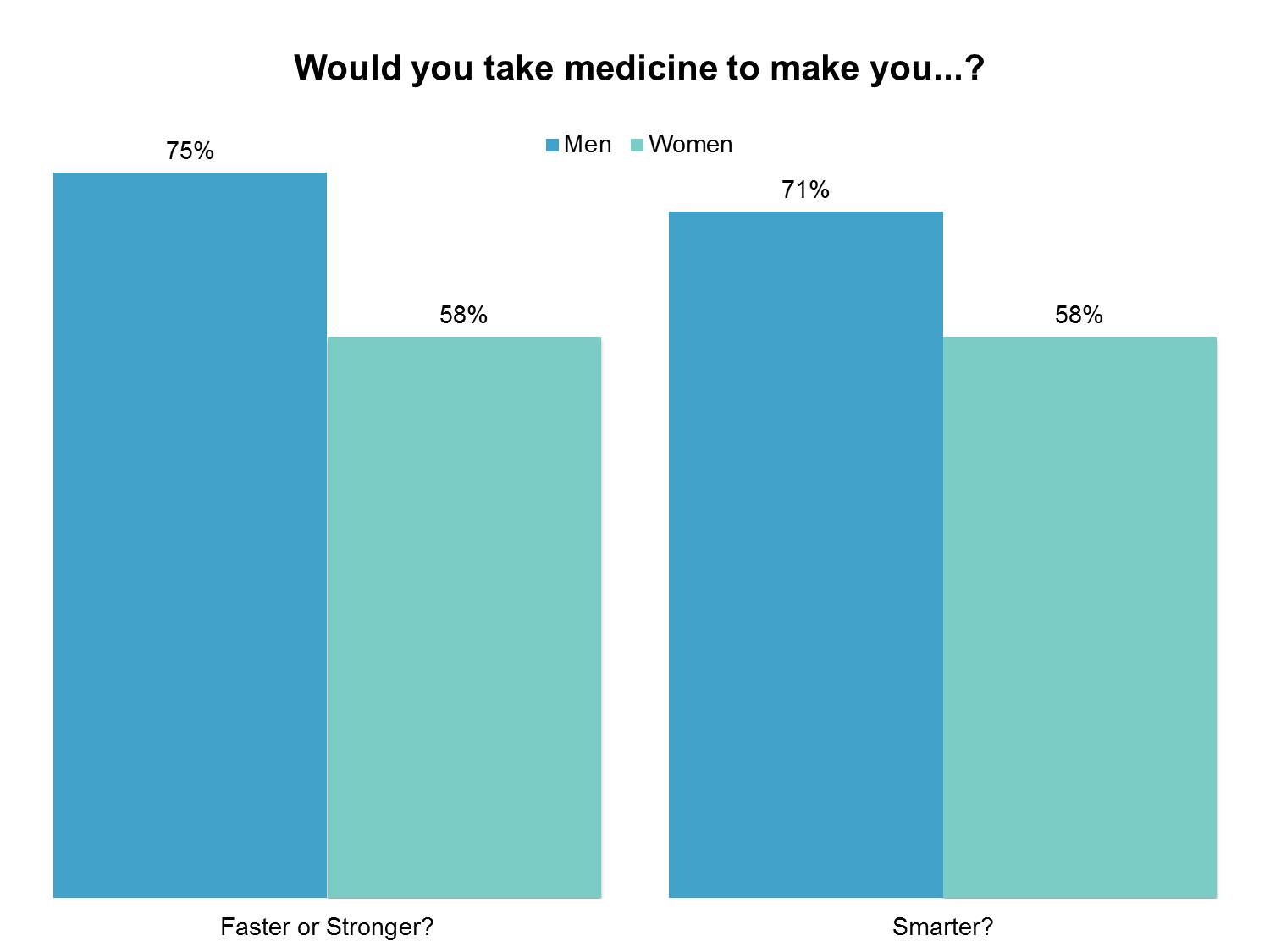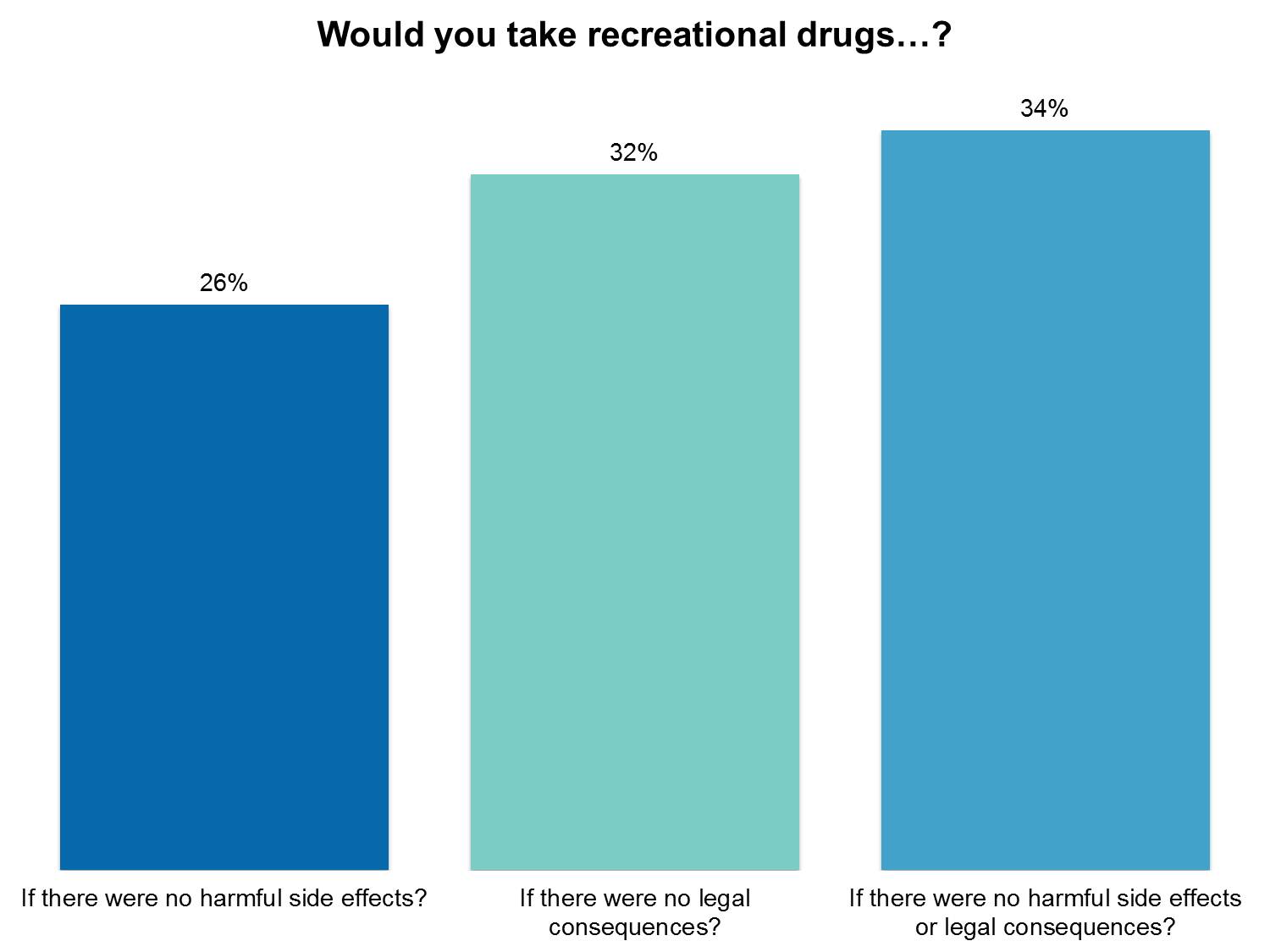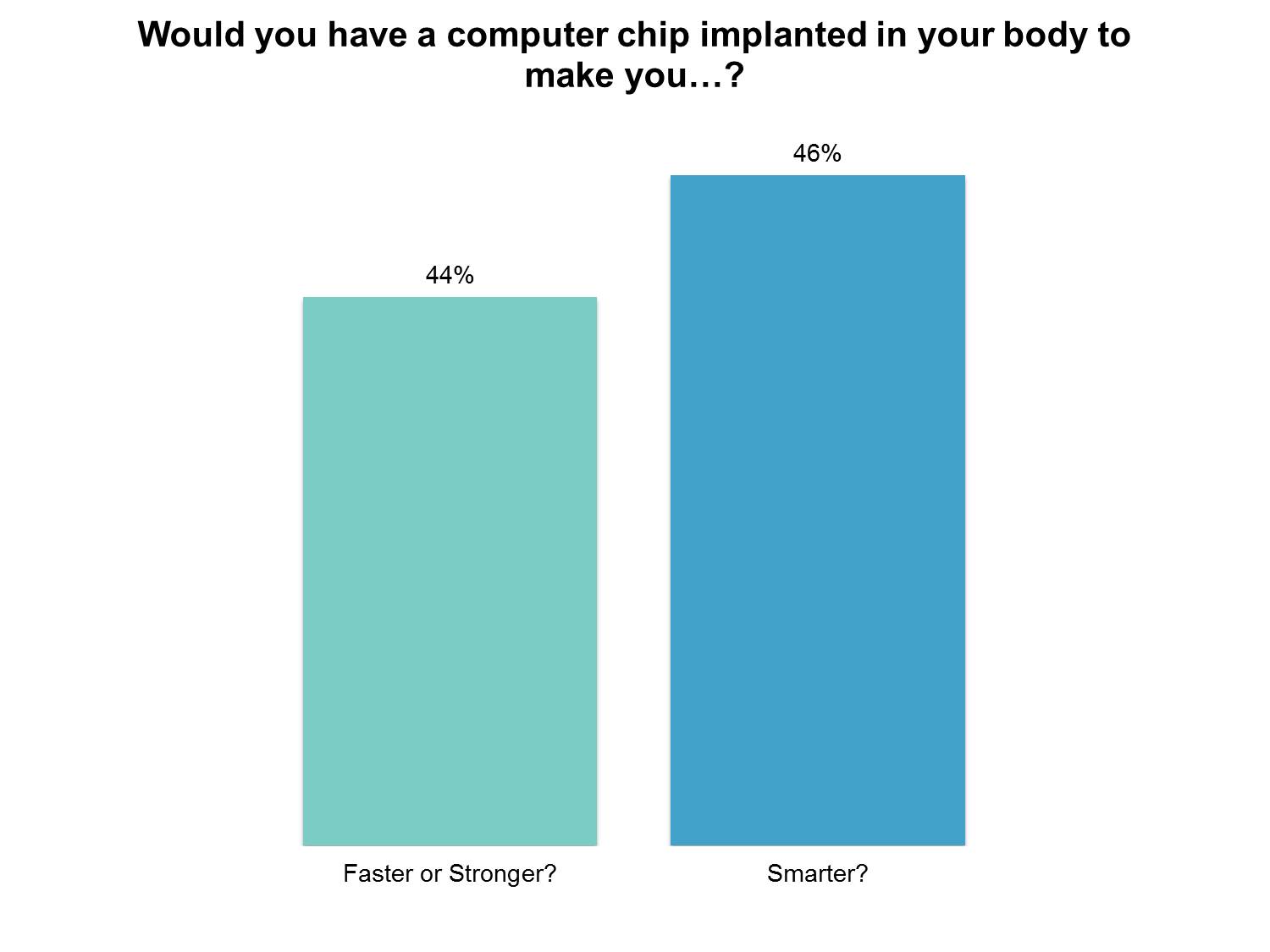65% of our panelists replied that they would take a medicine to make them faster or stronger. 64% said they would take one to make them smarter. Of our respondents, men were more willing than woman, with 75% of males telling us that they would take medicine to become stronger or faster and 71% saying they would do so to become smarter. 58% of women asked would take medicine for either result.

While our respondents were eager to embrace these potential pharmaceutical breakthroughs, they still seemed wary to try recreational drugs which are currently illegal. Only 26% of our panelists said they would try recreational drugs if there were no harmful side effects. On the other hand, 32% said they would do so if there were no legal consequences and 34% if there were no harmful side effects or legal consequences.

Though the option to improve speed, strength and intelligence through medicine was well-received, a more drastic route was less appealing. 46% of respondents said they would have a computer chip implanted to make them smarter and 44% said they would have one implanted to make them stronger or faster.

Overall, the young were most willing to attempt these technological aids. The 16-34 age group beat out 35-54 and 55+ age groups in almost all categories. Curiously, however, the 35-54 year-olds—the group least willing to try a medicine or have a computer chip implanted for enhanced abilities—were also the most willing to take illegal drugs if there were no harmful consequences.







